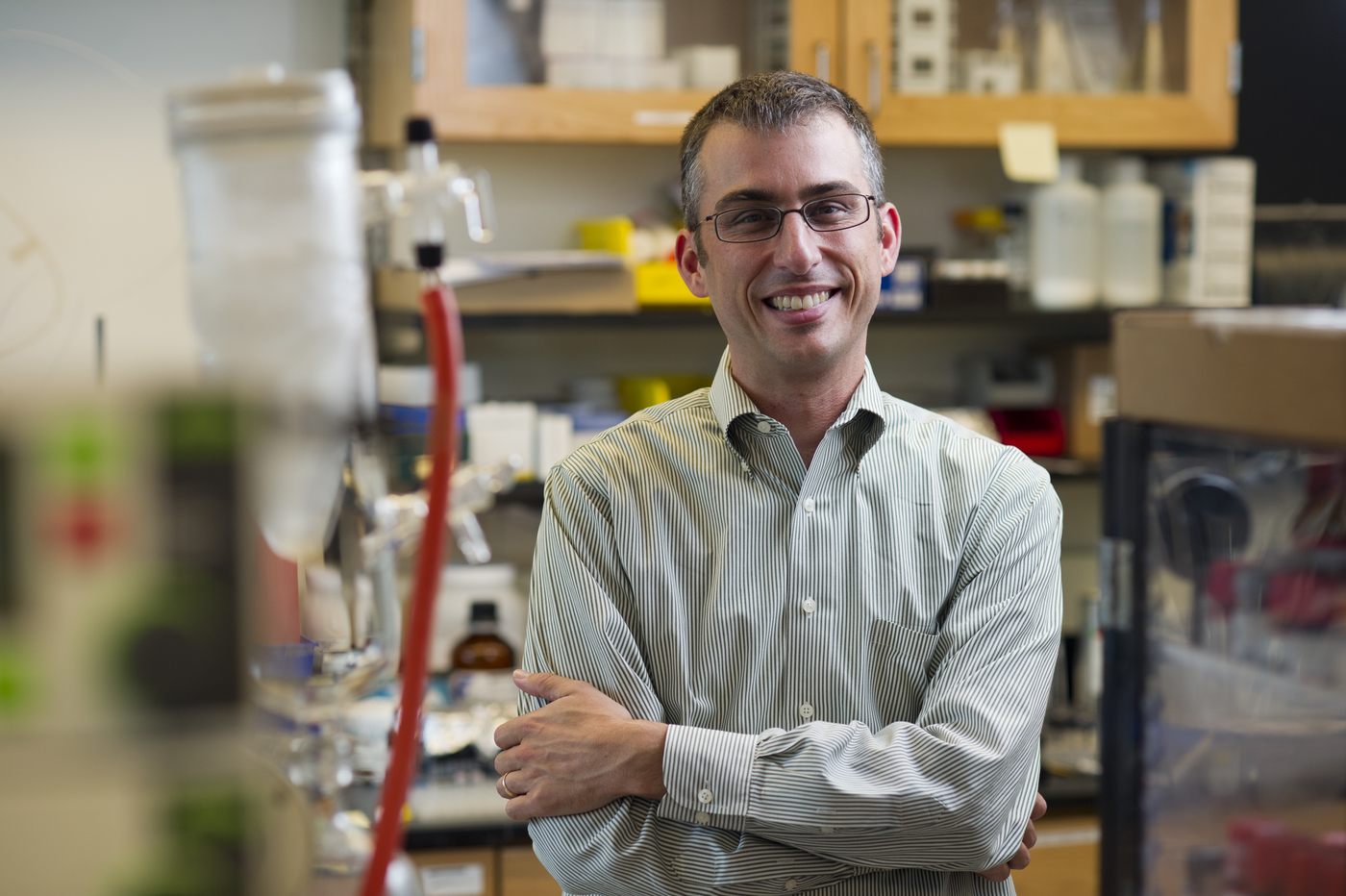Michael Pollastri, Professor and Department Chair in the Department of Chemistry and Chemical Biology sits down with the College of Science Graduate Program staff to talk about his research at Northeastern University.
Tell us about your current research.
Our research is focused on the discovery of new drugs for tropical diseases. Many of these infectious diseases (such as Chagas disease, Leishmaniasis, and human African trypanosomiasis) are considered to be “neglected” – meaning that the amount of research expenditures to discover new treatments for these infections is profoundly disproportionate to the societal burden of these diseases. Perhaps not coincidentally, the people who suffer from these diseases are among the poorest in the world; as a result of a small, if not non-existent, opportunity for profit, very little resource is directed at the expensive drug discovery programs needed to discover new drugs. Working in the non-profit academic environment, our lab is able to work on such high-risk projects with such low financial reward.
The manner in which we approach these projects is necessarily pragmatic and cost-saving. We repurpose drugs that have been pursued by the drug industry for treatments for cancer or other indications, and test these drugs for their activity against the infectious agents that cause these tropical diseases. If the compounds are active, we re-engineer their structures and properties to be better fit for treating the parasitic infections.
What drew you to your field?
I worked for about a decade in the for-profit pharmaceutical industry, where I was exposed to the most cutting edge techniques and approaches to discover new medications for cancer, diabetes, obesity, and cardiovascular diseases. Late in my time with the company, I learned about neglected tropical diseases and found that there was very little effort pursued to discover drugs in this area, and I immediately thought about ways in which I could apply these techniques I learned in industry to this under-studied field. So I moved from industry to academics to be able to acutely focus on these problems.
Since these diseases mainly affect the very poor and voiceless in developing countries, I felt an urgent, morally-driven pull towards applying modern drug discovery approaches to finding cures.
What do you like most about being a faculty member and department chair at Northeastern?
Northeastern is really a very unique University. Besides having great depth in fundamental scientific research, it is very much outward-facing, looking at ways that we can address real-world research problems. Northeastern is also keenly interested in interfacing with the industrial environment – not all Universities have this mindset. Furthermore, I have always sensed from the University leadership that there is a hunger to aspire to always improve, become stronger, and more impactful. As a faculty member, this has made me feel empowered and supported to launch new programs and initiatives (such as the Global Health Initiative, which I started with Professor Richard Wamai). In the last 18 months as a department chair, I’ve found great enjoyment in helping cultivate a culture that will enable my faculty colleagues excel in their own fields of expertise, as well as strengthen our educational offerings for our students. I feel very lucky to have been placed in a position where I can help enable excellence in my colleagues’ research programs and our educational offerings in such a wide variety of ways.
What is your favorite part about Northeastern?
I like the entrepreneurial energy that pervades Northeastern, and the sense that, from the perspective of College and University leadership (and hopefully Department leadership!) anything can be done here once you get the best minds together.
What is your favorite part about Boston?
I was born and raised in Massachusetts, so I consider Boston to be my home. I moved around a bit during my graduate studies, and returned to Mass. with a completely different perspective on what makes our region different from any other in the US. I enjoy the character of the region: gritty, no-nonsense, pragmatic, and a little edgy. Everywhere you look, there are exciting opportunities to experience the arts, to do and learn about science, and to enjoy some of the most storied sports teams (go Sox!)
What advice would you give to new and current COS graduate students?
My advice is always to keep your eyes open to science that is outside your immediate project focus. It’s tempting to keep the blinders on when it comes to doing graduate research. However, some of the very best science over the course of history has come from interdisciplinary interactions, where chemists talk to biologists and physicists, or even within a discipline, where analytical chemists and organic chemists learn what the other is working on! Keeping an open mind when looking at other fields or subfields of science through the lens of your own expertise can lead to highly significant innovations and discoveries.
Share a fun fact about yourself.
I play tuba (albeit in a fairly mediocre way). Through college, I was a member of a drum and bugle corps that toured and competed across the US and Canada. This required multi-week stretches of traveling from city to city in a caravan of buses – sleeping on the bus or on gym floors, practicing our show all day under the blazing sun, performing in competitions in the evening, and then loading onto buses to travel to the next city overnight. It was a formative experience for me as a musician and as a leader.

